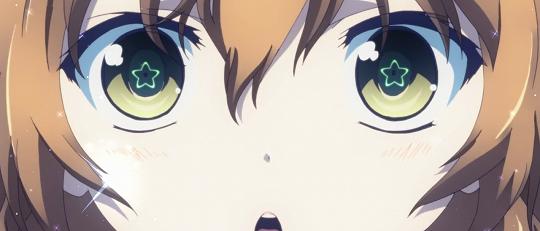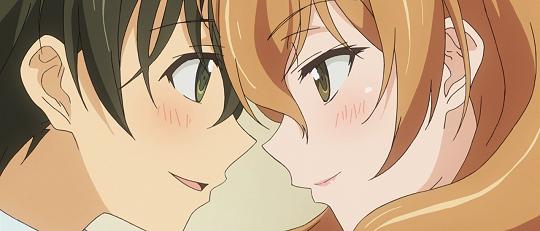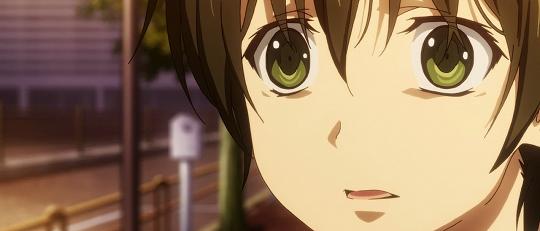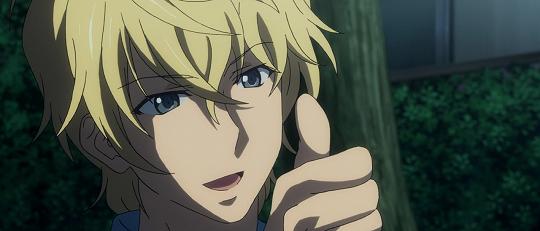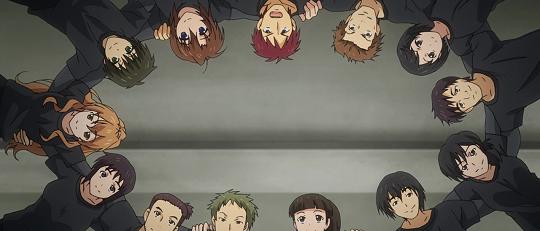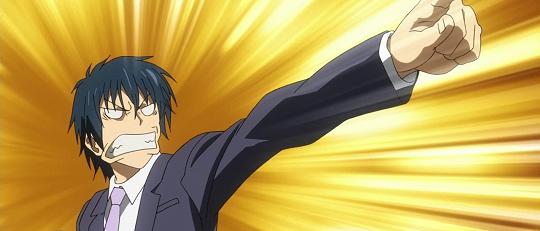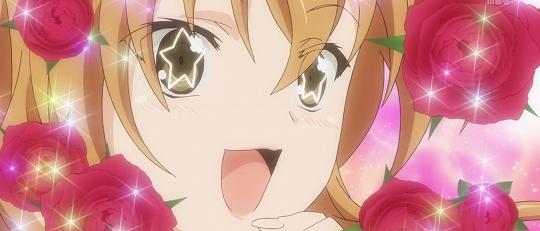I went through a very specific cycle with episodes of Golden Time: “1. What happened last episode? 2. Why am I watching this again? 3. Banri/Koukou/Mitsuo you clods, get it together. 4. Okay that wasn’t bad.” Rinse, repeat. The series has the same kind of moreish, ludicrous mentality that soap operas do, even going as far as leaving each episode on a cliffhanger regardless of how incongruous doing so is. It came as some surprise to me then that Golden Time is penned by the same author as Toradora, arguably one of the finest straight-faced campus romance series. Both have the same kind of unyielding outlook on relationships - romantic or otherwise - and a core pairing that drives the plot, yet Toradora never raised the question of its chosen medium like Golden Time does.
Both started as light novels by Yuyuko Takemiya and both have commendable anime adaptations yet Toradora’s cast of characters - the “palmtop tiger” Taiga and the faux delinquent Ryuuji et. al. - slotted right in with standard anime archetypes. After all, we’ve had boatloads of contemporary school romance stories both before and after. Golden Time though, with it’s inner-city University setting and the amnesiac Banri Tada and lion like Koukou Kaga, is something we’ve seen very little of before and it raises the question of: why an anime?
It feels odd questioning a series for its choice of medium, anime isn’t limited by genre or subject but does naturally accumulate tropes and topics by virtue of its demographic and presentation. Golden Time eschews almost all of these: there are no giant sweatdrops, only the rare super deformed face, no fantasy leanings; it’s almost as if the leap from light novel straight to live action was too far and there needed to be a stopgap or litmus test in between. It worked for Kimi ni Todoke at least with its live action movie doing supremely well upon its release; that series however used its medium to portray Sawako in both creepier and cuter lights than live action could hope for, and that’s saying nothing of the endless pastel sparkles.
In short, it feels odd that Golden Time, a straight forward character led drama, is an anime. That’s not a complaint mind you, it is with a few exceptions a supremely competent and engaging series that is worth investing time into and not least because it depicts an area of Japanese life that few other series touch upon. It has been said though that while Japanese high schools are crucibles of memorisation and cram schools, university is seen as a time to relax before joining the grand salary workforce of adulthood.
And relax is what the characters do, despite some brief shots of sparsely populated lecture halls, for the almost full year of story we see very little academic work taking place. It’s for the best really given that would get in the way of the interpersonal tribulations that are enacted by the cast. This is the mainstay of the plot and it’s rare that a handful of episodes go by before someone decides that it’s a good idea to try and raze their relationships to the ground with some ill timed emotional savagery. It would be boringly predictable were it not so… believable. The drama revels in the very human trait of saying and doing things that you don’t mean or the come across wrongly, that the imperfection of relationships is something to be celebrated.
So whereas there’s the expectation that the series will end with a grand scene of Banri regaining his lost memories and pledging his eternal love to Koukou after patching up his other relationships, that never happens. Instead you get a messy, haphazard but satisfying conclusion that illustrates the story is part of a continuum rather than the be-all and end-all. A large part of this flawed approach to characterisation is through the series’ choice of only telling the story from Banri’s point of view. There are asides and different threads that give texture and flesh to the others, turning characters like the manic pixie Chinami into a credible character, but we never see Koukou’s free time, we never see her travelling if she isn’t with Banri.
The result is that her actions often come across inscrutable, saying and doing things that seem entirely arbitrary until you look at it from her point of view and see that the choices Banri made has taken have lead her there. The irony is that it makes you empathise with Koukou more than you do with Banri, because even though Koukou starts the series as a maddening dervish of myopic passion, almost the textbook example of a bunny boiler, her growth and the realisation that she is desperately trying to change eclipses Banri’s enforced escapism. Banri changes because of his amnesia, living in constant fear of it, Koukou on the other hand understands her behaviour and, eventually, Banri’s. The best part of the series then comes when I disliked Koukou the most because when it seemed like Banri is on the mend, Koukou rejects him, choosing not to become a thing that Banri clings to for his wellbeing because she’s human rather than an object and, crucially, she’s been in his position and the dependency she felt she wouldn’t wish on anyone.
If all this sounds like a whole lot of melodrama then you’d be right and your enjoyment of the series will hinge on how much you sympathise with the characters and how much you invest in them. The drama isn’t the only layer to the series though, and once you start peeling away the tears and traumas and words shared in darkened rooms you start seeing the metaphors. At first it’s the small ones like Banri’s mirror being cracked and the relation that has to his mental wellbeing, or perhaps the bridge he falls from representing his past life of high school and the future life of university, even Banri’s lack of memories echoing the idea that you reinvent yourself (in this case forcibly) when presented with a new situation in life. But then there’s the quieter, grander metaphor of the entire series; of that period of life between adolescence and adulthood when the lack of responsibilities in one are replaced with the pressing weight of the other. In short, finding yourself. It’s something that Koukou rails against directly two thirds of the way through after a particularly memorable trip to the beach, fighting against her childish instincts in an adults body.
There is a lot to enjoy with Golden Time although if you have yet to experience the personal crisis that the series revolves around then your satisfaction may be fundamentally different. It of course isn’t without its flaws: a couple of early subplots involving a cult and an adulterous fiancee feel like they add very little, although the series twenty four episode runtime feels just right (if a little baggy) for the story being told. Animation is perfunctory, although given Koukou’s mane and the immense number of outfits the characters go through it’s perhaps expected and while the soundtrack largely follows suit, the second opening track is thoroughly bizarre, sounding a lot like a marching band trapped inside a music box. Credit to Yui Horie though not only for her voice on all the opening and ending tracks but for using her immense experience to give life to Koukou; it’s more than likely that a lesser voice actress would have tainted the otherwise sensitive portrayal of her.
It would be unfair to summarise Golden Time as “if you liked Toradora then you’ll like this” because they are two very different shows and cater to different demographics. There is a core humanity to both and though one could be written off as boundless teenage angst, the other is more nuanced and demonstrates the somewhat inalienable idea that everyone is somewhat broken and flawed. Whether Golden Time is a best fit for an anime though? Perhaps the expressiveness and perfection that anime allows is the right fit here though it’s hard not to imagine this story being adapted to live action should this anime prove successful. It certainly has every right to be.
